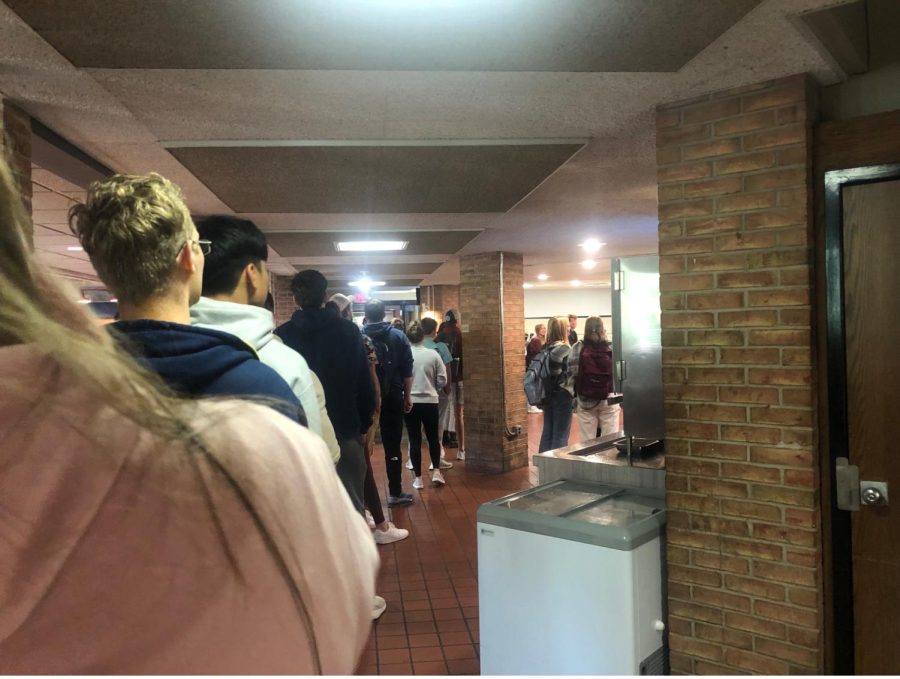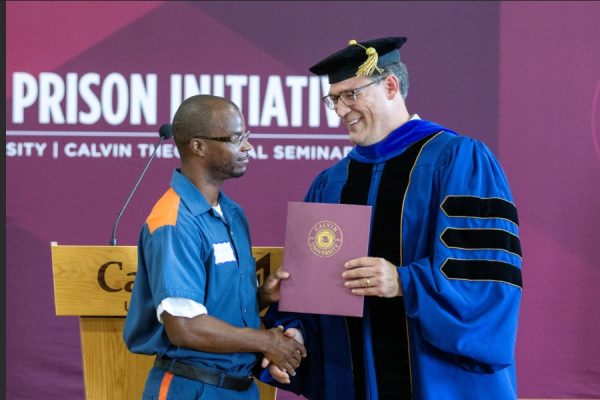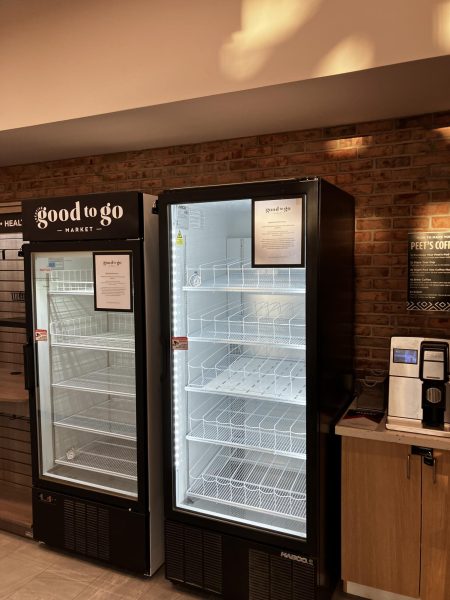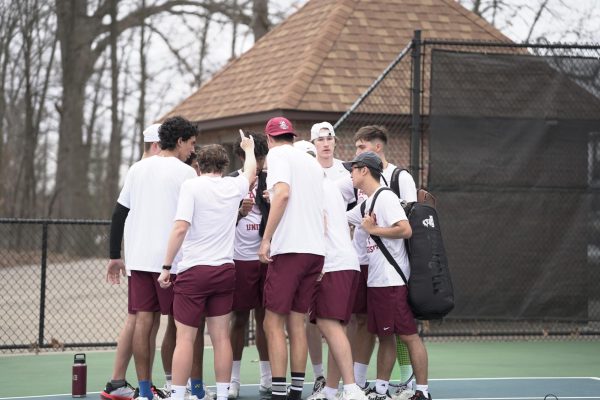Long lines as Dining Services adapts to low staffing levels
Due to staffing shortages, Knollcrest is closed for lunch, causing longer lines at Commons.
After unexpected staffing shortages, Dining Services decided to close Knollcrest for lunch, which produced long lines at Commons. In response to complaints, Dining Services and Student Senate are working to reduce congestion.
Commons is “always busy” for lunch, said sophomore James DeVries. “I’m just upset, because I have this specific gap [in my class schedule] when I can get food, and I still have to wait a while to even get my food.”
In previous years, both Commons and Knollcrest were open simultaneously for lunch. “That was way better, because now this is way congested,” DeVries said.
DeVries’ frustration is shared by many students, but the university does not have enough dining staff to open both dining halls for lunch.
It was a last-minute switch, according to Dining Services’ Director of Hospitality Operations Estelle Bean.
“We thought we were in a good place two weeks before classes started,” she said.
Then the staffing troubles began. “We had people ghosting us, which was really crazy,” said Bean. Some individuals completed the onboarding process and then simply did not show up for work, according to Bean.
Without enough employees to staff both dining halls, Dining Services chose to trim service at the less popular lunch spot: Knollcrest. “We were only feeding around 200 on a good day at lunch,” Bean said, making Commons the clear choice to fully staff.
As a result, traffic at Commons has increased significantly.
“The main difference I’ve noticed is that the increased number of people means more food gets prepared and eaten each day, and the lunch rush lasts much longer,” said senior Aidan Bakker, who works in the kitchens at Commons.
“We know the lines are an issue,” Bean said. “We’re doing our best.”
Dining Services has adjusted some operations to reduce wait times. These adjustments include the brand-new sandwich spread in the salad bar area, which can serve as a quick option for students in a rush and dining hall workers serving the food at Kimchi’s. Switching from self-serve to staff-served food at Kimchi’s “knocked about five minutes off the wait time,” said Bean. Bean also told Chimes that there is another station in the works –– but “it’s kind of a surprise,” she said.
Dining Services is also partnering with Student Senate to facilitate student feedback.
One senator, junior Joshua DeWindt, plans to propose a QR code feedback system for the dining hall, which he hopes would be a simple way for students to quickly speak their minds. By using QR codes instead of year-end surveys, he said, “we’d be able to get more real-time feedback.” DeWindt envisions being able to send data to Dining Services about menus that perform well –– and those that don’t.
At the moment, Bean told Chimes there are no concrete plans to reopen Knollcrest for lunch. Even if the staffing issue were resolved, having two dining halls open simultaneously might not be the best option, Bean said.
“There’s always going to be lines [no matter how many dining halls are open] because of the class structure here,” said Bean. If Dining Services’ initiatives are successful in making wait times “reasonable,” she said, then maintaining Commons as the sole lunch destination might make the most sense. “We would have to look at it and see.”










